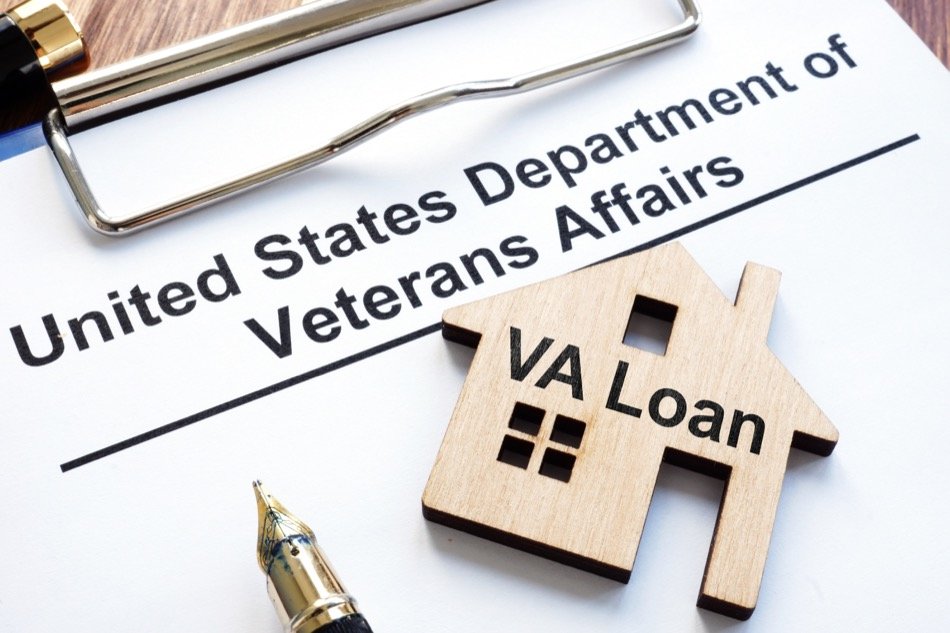4 Facts About VA Home Improvement Loans
Posted by Lauren Schneider on Monday, December 9th, 2019 at 9:19am.
 The Department of Veterans Affairs backs one of the most attractive loans available in the industry today. However, they have their own rules when it comes to what types of property are eligible for these special loans. Those who want to buy a fixer-upper will not be approved unless the home meets basic livability standards and declared free from defects. For those whose dream homes may need some work to meet these requirements, a VA home improvement loan may be useful. Learn more about how these loans work and who they're meant for.
The Department of Veterans Affairs backs one of the most attractive loans available in the industry today. However, they have their own rules when it comes to what types of property are eligible for these special loans. Those who want to buy a fixer-upper will not be approved unless the home meets basic livability standards and declared free from defects. For those whose dream homes may need some work to meet these requirements, a VA home improvement loan may be useful. Learn more about how these loans work and who they're meant for.
For informational purposes only. Always consult with a licensed mortgage or home loan professional before proceeding with any real estate transaction.
Understanding the Terms
A VA home lender wants the property to be in good condition so they can protect their investment, and the US government wants the home to be in good condition to protect its veterans. If the home needs serious repairs, such as a complete overhaul of all its systems, it may not be worth the cost of a loan (and the time it takes to make the improvements) on top of the costs of a mortgage premium. A lender will require major structural damage to be fixed before approving an application.
Types of Home Improvement Loans Available
There are several types of loans that veterans can use to make home improvements:
- Cash-out refinance: A cash-out refinance loan allows veterans to turn their equity into liquid cash that can be used for renovations.
- Renovation loan: This option lets veterans roll the cost of improvements in with their mortgage (regardless of whether they're buying or refinancing). With a renovation loan, homeowners may be charged up to 2% of the cost of the renovation loan on top of the Funders Fee and loan origination fee.
- Supplemental loans: A supplemental loan can be used for basic livability upgrades and can be included in a refinance or treated as a second mortgage.
As buyers can see, there are only so many options if the buyer doesn't already own the home. However, even with the extra fees, a renovation loan can be a great way to get excellent rates on a home improvement loan.
Comparing the Loans
The type of loan that's right for each buyer will depend on how much work needs to be done. Those using a loan to improve their energy efficiency will typically find favorable terms with most lenders—until they apply for more than $6,000. Under these circumstances, owners will need a special commitment certificate from the VA and be subjected to greater lender scrutiny.
Similarly, those applying for more than $3,500 under a supplemental loan will need to undergo a compliance inspection and receive a value statement before being approved. Experts typically recommend a VA renovation loan for a property that will benefit from care and attention in a relatively prosperous area. The maximum amount given is dependent on how much the home will be worth once the repairs are completed.
Estimating the Wait
With a VA-backed home loan, the buyers aren't supposed to move in until they can prove the home is safe. So if owners are taking out a renovation loan, this can really add to how long it takes to close on the home. It can be a big project for many homeowners to take on, especially if they're unaccustomed to the unpredictable timelines of construction projects.
VA loans boast some of the most forgiving terms for eligible Manitou Springs buyers, regardless of whether it's to purchase or renovate the property. However, there are a few details that buyers should know before they decide to take on a serious renovation for themselves.
For informational purposes only. Always consult with a licensed mortgage or home loan professional before proceeding with any real estate transaction.
